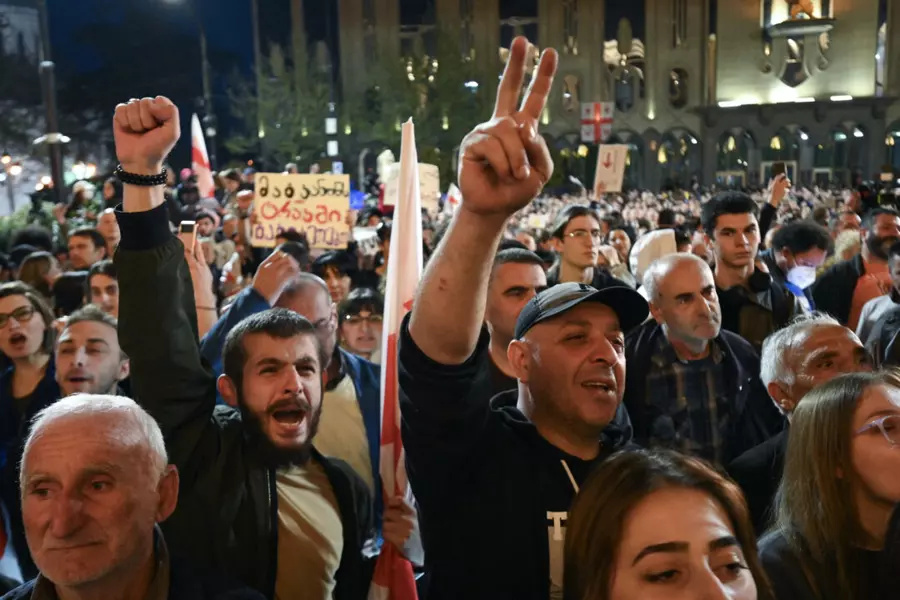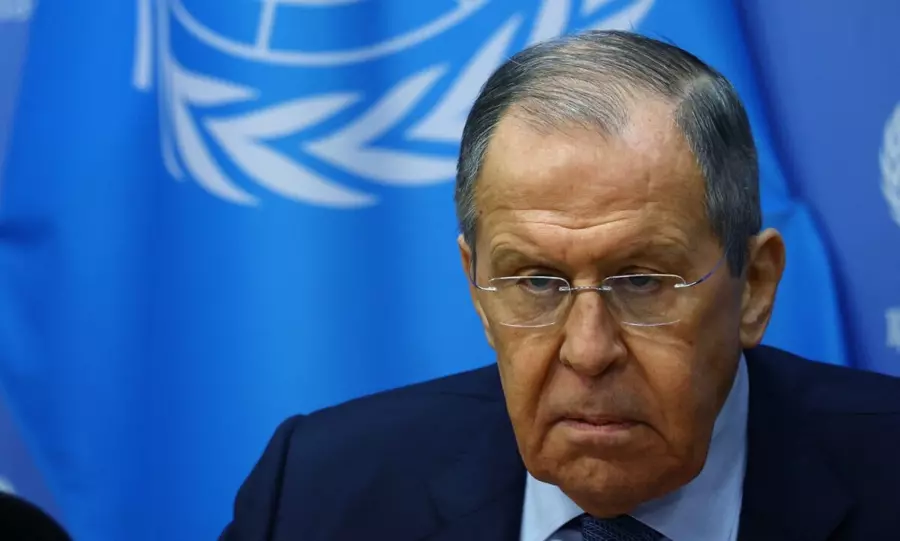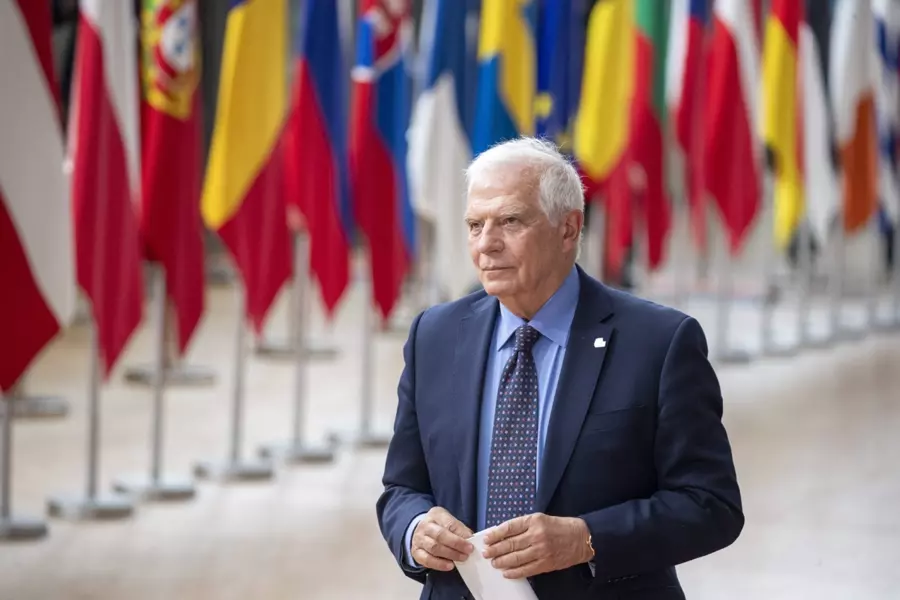In the Georgian capital of Tbilisi, ongoing protests have taken place against proposed legislation aimed at countering perceived foreign influence within the South Caucasus nation. If enacted, this law would mandate organizations receiving funding from abroad to register as “foreign agents,” with failure to do so resulting in financial penalties.

On April 28, thousands of protesters marched through Tbilisi’s streets to demonstrate against the bill, which critics, both local and foreign, argue is “inspired” by Moscow. According to protester Nika Shurgaia, the law’s passing would lead to the closure of numerous non-governmental organizations (NGOs) that rely on overseas funding for their domestic activities.
There are hundreds of such NGOs who have done so much good for Georgia,” Mr. Shurgaia told Reuters. Now they face being stigmatized and possibly shut down.
Opponents of the bill derisively refer to it as “the Russian law,” comparing it to legislation allegedly used by Moscow to suppress political dissent. The Kremlin has denied any connection with the contentious bill.
Critics are also concerned that adopting the bill would hinder Georgia’s chances of joining the European Union, which granted the country candidate status in December 2022. Several Western countries, including the United States, the UK, and Germany, have urged Georgia not to adopt the legislation.
Proponents of the law argue that it is necessary to protect the country from malign foreign influences operating under the guise of “civil society.” Georgian Prime Minister Irakli Kobakhidze told reporters last week that such transparency “is needed for a well-informed society, which is essential for ensuring the country’s sovereignty.
The ruling Georgian Dream party, which supports the bill, also believes that the law is needed to combat what it calls “pseudo-liberal values” imposed by foreign entities. The protesters marched toward the parliament building where they clashed with police, who used tear gas in response. During this altercation, former State Minister for European and Euro-Atlantic Integration Alex Petriashvili was detained by police, according to local media.
The Georgian government called on supporters to stage a counter-demonstration on the evening of April 29 in favor of the bill. On April 30, parliament will vote on the bill’s second reading, which is expected to pass. If lawmakers approve the second reading, opposition parties and civil society groups are likely to call for additional demonstrations.
Under Georgia’s constitution, the bill must survive three readings in parliament before it can become law. Last year, a similar effort by the ruling party to pass the bill was abandoned after several days of demonstrations. However, earlier this month, lawmakers from the ruling party reintroduced the draft legislation, with the first reading being approved on April 16.
This move sparked fresh protests and drew criticism from EU officials. EU foreign policy chief Josep Borrell stated in a social media post that “the final adoption of this legislation would negatively impact Georgia’s progress on its EU path.” He added that if the bill were to be adopted, it would “limit the capacity of civil society and media organizations to operate freely. and unfairly stigmatize organizations that deliver benefits to the citizens of Georgia.
The U.S. Justice Department’s website explains that the Foreign Agents Registration Act (FARA) requires certain agents of foreign principals to make periodic public disclosure of their relationship with the foreign principal, as well as activities, receipts, and disbursements in support of those activities. Disclosure of the required information facilitates evaluation by the government and the American people of the activities of such persons in light of their function as foreign agents,” it reads.
On April 19, Russian Foreign Minister Sergey Lavrov claimed that Georgia’s “foreign agents” bill was less stringent than those of other countries. He stated in broadcast remarks that “in the United States, France, Poland, and many other countries, there are laws that stipulate fines and criminal penalties if you receive money [from foreign sources] and keep quiet about it.


